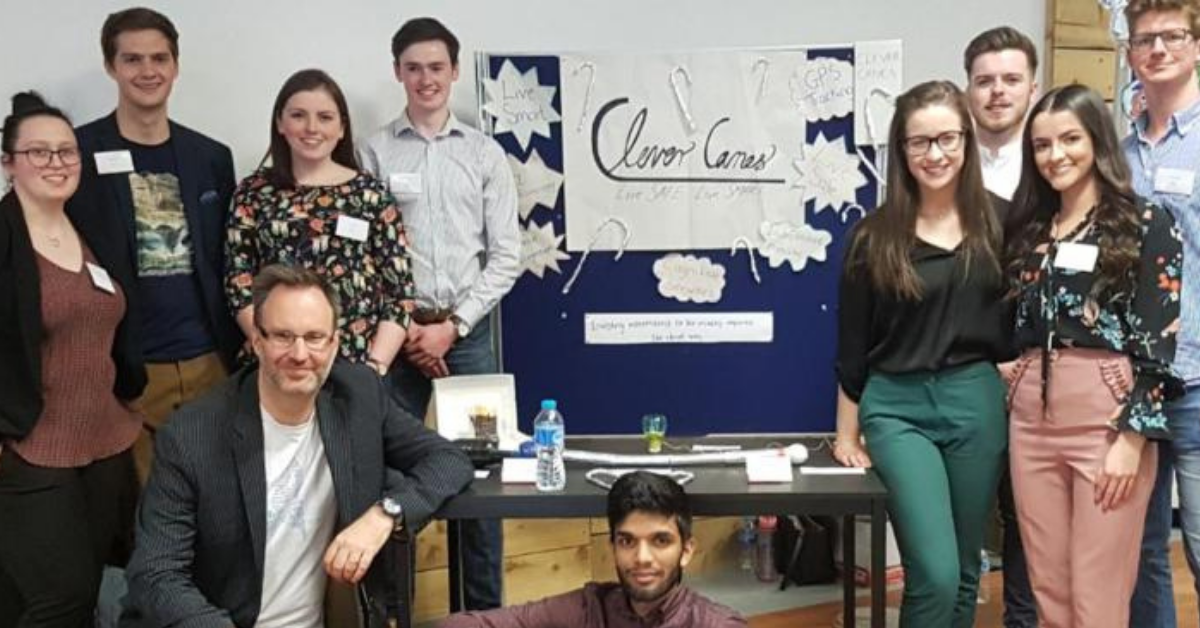The Careers, Employability and Skills team at Queen’s University Belfast were delighted to welcome Justice Minister Naomi Long MLA to the launch of the new student development programme ‘Real-World Challenge: Inside the Prison System’ on Saturday 13 March 2021.
The Justice Minister addressed the first cross-disciplinary cohort of over 30 Queen’s students to complete the virtual consulting challenge, which involved expert mentorship from justice agencies in a bid to tackle the problem of youth reoffending in Northern Ireland.
Joined by NI Prisons Director, Austin Tracey; Olwen Lyner, Chief Executive of NIACRO; Fred Caufield, Executive Director of the Prison Arts Foundation and by staff and inmates from Hydebank Wood Young Offenders Centre and Prison, Ms Long advocated for a collaborative, people-centred approach to reduce reoffending, highlighting the following points:
“Rehabilitation is about building positive and constructive relationships with those in our care as we challenge and support them to change. Regardless of what they have done, they are people, just like you and me, and should be treated firmly but fairly, and with courtesy and respect.”
“There are a range of socio-economic factors which have been known to have an impact on reoffending, including poverty, social deprivation, mental health issues, substance misuse, homelessness and a lack of educational attainment and employment opportunities. These factors contribute towards the reasons why people become involved in crime in the first place and they are often exacerbated through contact with the justice system leading to a cycle of offending which causes significant harm to victims and communities. Addressing reoffending not only means tackling these issues but also creating positive connections back into supportive families and communities so that they become enablers of real change.”
“With children, offending is often a manifestation of underlying issues such as problems within the family home, disengagement from the education system, poverty and social exclusion. A new model of practice based on the child first, offender second approach, includes a focus on adverse childhood experiences, trauma-informed practice and signs of safety. Keeping children out of the justice system and out of custody in particular can be key to improving their longer-term outcomes.”
“The development and delivery of problem-solving approaches means dealing more effectively with the root causes of offending behaviour in a range of areas including both domestic abuse and substance misuse… Having a safe place to live is one of the most important factors contributing towards someone moving away from offending behaviour. So, we want to improve the support offered to these offenders upon their return to the community to ensure that they do have secure housing. Improving access to opportunities for re-education and employment is also crucial.”
“A significant number of offenders have underlying health needs. The Departments of Health and Justice are working to improve health outcomes for people in the criminal
justice system in particular collaborating with social care professionals to improve services for people in Northern Ireland Prison Service care and also via delivery of a renewed person-centred approach to supporting people at risk of suicide or self-harm…. The Probation Board are also engaged in the early scoping work around the development specifically of a Mental Health Court.”
“There is still much room for improvement at each end in terms of diverting people away from the prison system and from custodial sentences and also ensuring better rehabilitation and resettlement for those who emerge from the justice system.”
Claudine Sutherland, an Employer Engagement Officer within Careers, Employability and Skills at Queen’s University Belfast said: “We’re delighted that the Justice Minister and Prison Director could take time out of their busy schedules to motivate and inspire our students.”
Mary McLaughlin, a Careers Consultant within Queen’s Careers, Employability and Skills, added: “At Queen’s, we’re always looking to give our students access to industry insight experiences and to offer them opportunities to apply their academic knowledge to real-world settings. This is particularly important during this academic year, with lockdown restrictions narrowing the opportunities for exposure to the real working environment. Our Real-World Prison Challenge is a very welcome example of how we have been able to diversify the delivery of our Careers service and embrace digital platforms to continue to support our students and graduates with all aspects of career planning, development and decision making.”
Queen’s University Belfast will be running similar Real-World Challenges in 2021 and beyond and hope to see many more students taking part. Check our events page for details.









